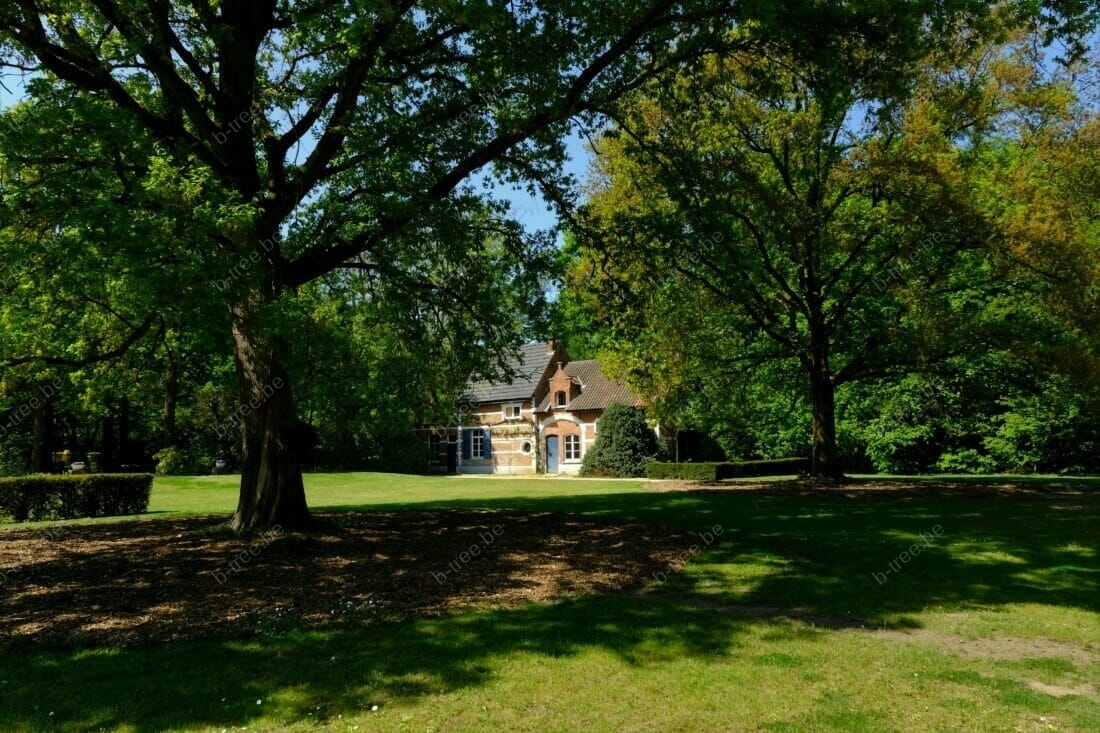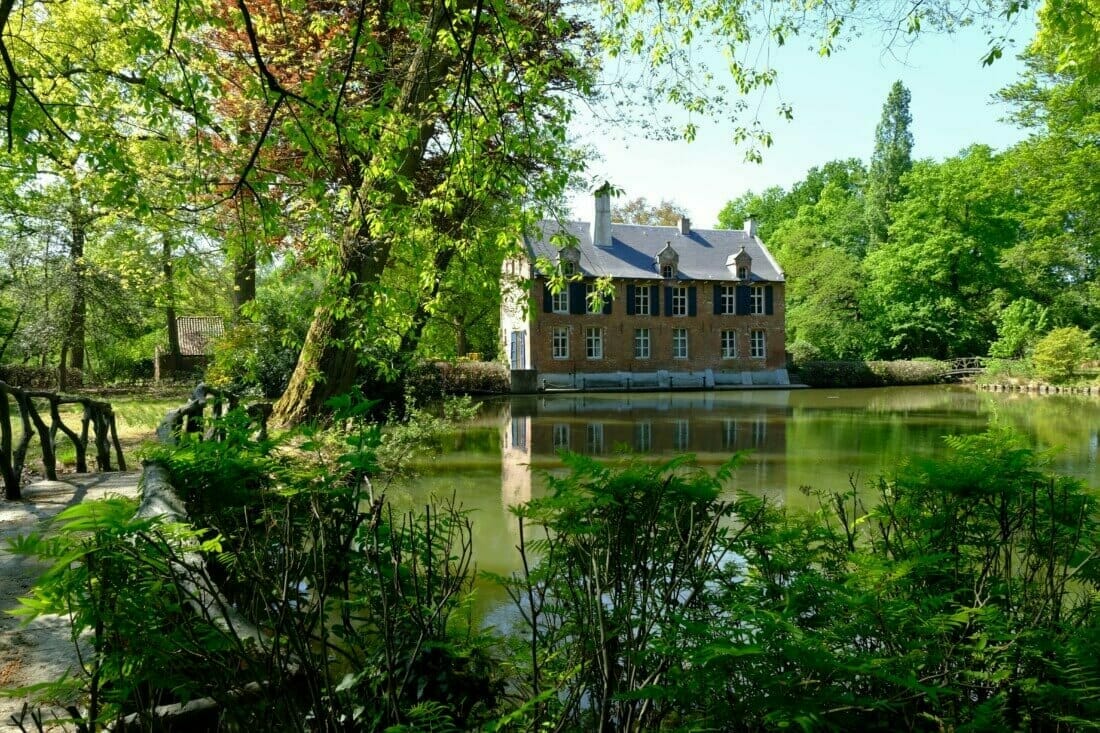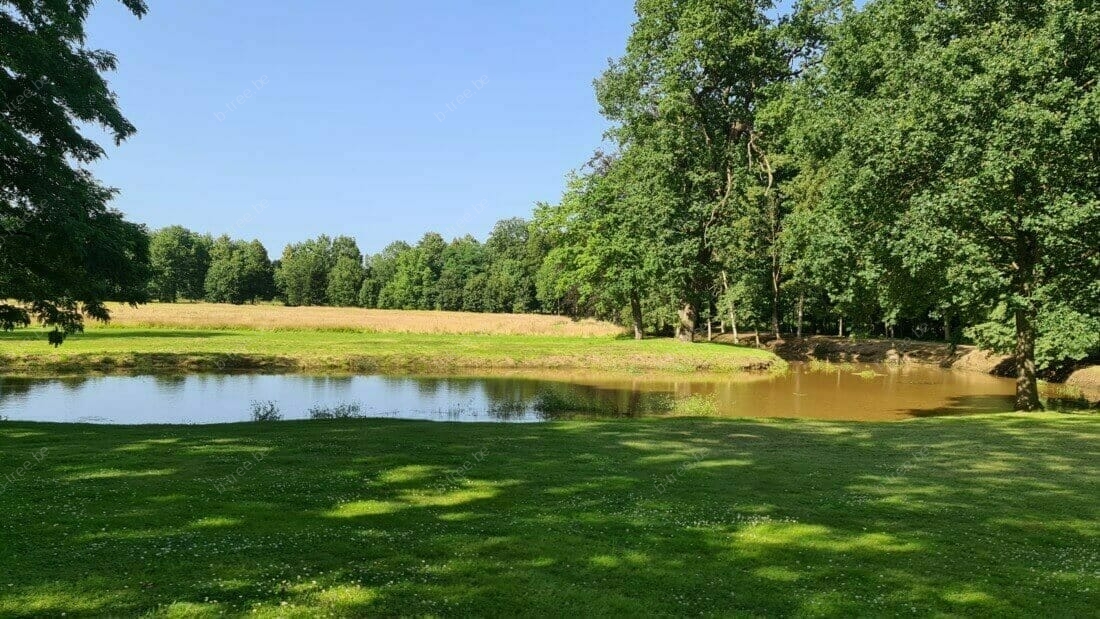
Types of gardens and their benefits
The different garden types and their benefits
Gardens are an important part of the landscape and play a vital role in creating green oases in urban and rural areas. There are different types of gardens, ranging from formal to informal gardens and from vegetable gardens to ornamental gardens. Each type of garden has its own unique features and benefits. Here you can read more about the different types of gardens there are, and the benefits they offer for people and the environment.
What are formal gardens, castle gardens or park gardens?
Formal gardens or castle gardens are characterized by their symmetrical design and clean lines. They are often associated with estates, historic buildings and castles. The benefits that formal gardens provide include:
- They have an aesthetic beauty. Formal gardens or castle gardens exude a sense of elegance and sophistication, making them perfect for formal events and ceremonies.
- The often very austere design of formal gardens provides a sense of order and structure, which is soothing to the mind.
- You will often find old monumental trees, which are impressive eye-catchers in the overall appearance of the garden.
- Water features and fountains are also often integrated into the formal garden. The presence of water and greenery is the most beautiful combination to allow you to experience nature and tranquility.
A specific type of garden is the heritage gardens
Heritage gardens are historic gardens that are often connected to old country houses, castles, monasteries, abbeys and estates. These gardens often have a rich history and have been carefully designed to meet the needs of daily life as practically as possible for the people who lived there. This cultural and architectural heritage is often protected to preserve it as best as possible over time. The benefits of heritage gardens include:
- Heritage gardens represent the history, architecture and lifestyle of past generations, making them important cultural values and heritage sites.
- These gardens provide educational opportunities and opportunities for visitors to learn more about garden architecture and historic landscape designs.

Heritage garden with a view of the large pond and the country house or castle. The park garden is defined by the large trees, the water and the old buildings.
Another type of gardens are the informal or natural gardens
Informal gardens have a more natural look and are often designed to create a relaxed and convivial atmosphere. Benefits of informal or natural gardens include:
- An informal garden supports natural biodiversity better, because there are more types of flowers, shrubs and trees.
- Informal gardens provide an excellent habitat for many different species of insects and wildlife, precisely because of the variety of plants.
- With their relaxed and casual appearance, informal gardens or natural gardens are perfect places to relax and enjoy nature.
Rural gardens
Rural gardens are often found in the countryside and have a rustic appearance. These gardens are characterized by a relaxed and informal atmosphere. The benefits of country gardens include:
- Country gardens emphasize the natural beauty of the surrounding landscape, creating a seamless transition between the garden and the environment.
- By the presence and attraction of native plants, herbs and flowers, rural gardens contribute to biodiversity.
- Rural gardens provide maximum support for local flora and fauna. On the one hand, through their seamless integration into the natural landscape and through their support of biodiversity.

Landscaped garden with planted trees and landscaped water feature, which blends seamlessly into the natural landscape and grassland.
Ecological garden type and the benefits, also for the climate
Ecological gardens are becoming increasingly popular due to their focus on creating a harmonious ecosystem and supporting biodiversity. They are not rigidly designed, they have a slightly looser, but still well-organized approach to maintenance, so that all plants, herbs and flowers can develop to their maximum potential.
This garden type mainly consists of borders of flowering shrubs. Flowers and herbs are often combined with trees and lawns. Ecological gardens have many advantages:
- Environmentally friendly: Ecological gardens use sustainable methods, such as composting, rainwater harvesting and avoiding chemical pesticides.
- Biodiversity: These gardens promote biodiversity by attracting native plants, pollinators and beneficial insects.
- Ecosystem services
- Water management
- Diseases and plagues
What are ornamental gardens?
Ornamental gardens are designed to add aesthetic value to a home and to enjoy colorful flowers and beautiful landscapes. A lot of attention has often been paid to the color and scent palette. Also throughout the seasons. Such as from the time the first plants sprout until the autumn color changes. Ornamental gardens offer the following benefits, among others:
- Ornamental gardens have a high aesthetic appeal. They add beauty and charm to the environment, making them pleasant places to look at and linger.
- Ornamental gardens, and maintaining and enjoying them, can reduce stress and promote a sense of well-being.
City gardens
Urban gardens are a creative solution to the lack of space in urban environments. They can be located on balconies, terraces, roofs, courtyards or small plots of land. Some properties of urban gardens are:
- Space optimization: urban gardens make optimal use of limited spaces and contribute to green zones in urban areas.
- Urban gardens help reduce air pollution by absorbing carbon dioxide and releasing oxygen. Urban gardens also improve air quality by filtering fine dust from the air, and in the city the concentrations of fine dust in the air are often much higher than in the countryside.
- And because city gardens radiate greenery, people relax more, even just by seeing the garden from their home.
Zen gardens
Inspired by Japanese culture, Zen gardens are designed to promote a sense of peace, harmony and meditation. Some properties of Zen gardens include:
- Mental tranquility: Zen gardens invite inner peace and meditation, thus having a calming effect on the mind.
- Zen gardens have a minimalist design. The simple and balanced design of a Zen garden creates a sense of order and serenity.
Modern Gardens
Modern gardens are inspired by contemporary architecture and design. They often have clean lines, minimalist elements and innovative materials. Benefits of modern gardens include:
- Aesthetic appearance: modern gardens offer a contemporary and stylish appearance, matching modern and contemporary architecture.
- Functional spaces: these gardens are often designed with functionality in mind and can, for example, invite outdoor living or entertainment.
- Modern gardens are sleeker through neatly pruned hedges.
Vegetable gardens, fruit and vegetables combined in one place
Vegetable gardens have become popular due to the increasing interest in sustainability and healthy eating. In a vegetable garden you will find fruit trees, vegetables and flowers. Fruit trees are often present in the form of low trunks or fruit hedges. The flowers provide habitat for pollinating insects, which benefits fruit production. The vegetables are then grown on a bed, together with other vegetables, so that no spraying agents are needed to manage insect damage. There are many benefits associated with having your own vegetable garden:
- A vegetable garden promotes sustainability,
- It reduces dependence on industrial food production,
- You always have fresh and healthy products. Growing your own fruit and vegetables provides fresh and healthy products without chemical pesticides.
Every garden type has its own characteristics and advantages
The different garden types offer a range of benefits, from aesthetic beauty and relaxation to biodiversity and historic preservation. Each type of garden has its own unique characteristics and contribution to our well-being and the environment.
Whether it is a formal garden, an informal garden, a vegetable garden, an ornamental garden, a rural garden, a heritage garden, a city garden, a Zen garden or a modern garden, gardens are valuable and versatile spaces that enrich our living environment and give us connecting with the natural world around us. So that we can relax.
Contact us: choose your garden type and know the benefits
Do you have to ask about gardens and their benefits, if you wish to have your garden maintained, adapted or expanded, and if you want to be assured of the best and most qualitative approach, also for your existing trees, do not hesitate to contact us can be contacted without obligation.